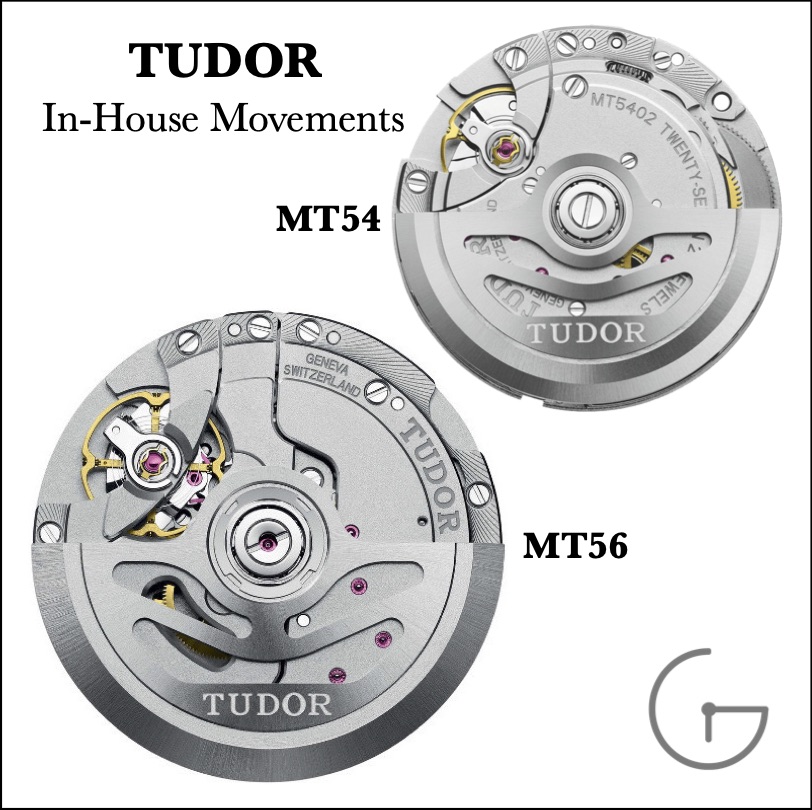
After a number of recent wins at the Grand Prix d’Horlogerie de Genève, including two last year and another this year, I felt it was time to get a better understanding of the movements produced by Kenissi for Tudor, Chanel, Breitling, and Norqain. Kenissi, a joint venture between Tudor (Rolex), Chanel, and Breitling, is becoming one of the most successful upscale movement makers, and their products are top notch. As of 2020, Kenissi produces two movement families (the robust MT56 and compact MT54) and Tudor shares one with Breitling (the MT5813 chronograph), and these are used in many luxury watches ranging from the affordable Norqain to expensive Chanel J12 jewelry pieces.
Read on for more context, or hop over to look at the complete Tudor MT54 family and Tudor MT56 family pages!
Tudor MT56 Family Overview
Tudor traditionally used movements from major manufacturers, chiefly ETA in modern times, as a differentiator from parent company Rolex. Beginning in 2015, the company began producing a line of “Manufacture Tudor” movements for certain models, beginning with Cal. MT5621. These are based on Rolex technology, and include that company’s silicon hairspring technology, full balance bridge and free-sprung Microstella balance wheel.
In 2016, Tudor founded a new movement producer in Geneva known as Kenissi managed by Eric Yvon Pirson (head of Tudor), Jean-Paul Girardin (formerly of Breitling), and Philippe Jacques Dalloz. Two years later, the company constructed a new factory in Le Locle on land owned by Rolex. Chanel invested in Kenissi in 2019, taking a 20% stake in the company. As of 2020, Kenissi produces movements for Tudor, Chanel, Breitling, and Norqain.
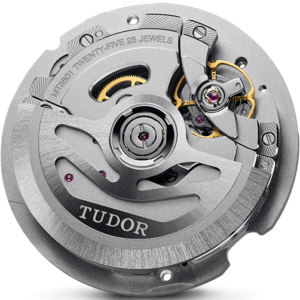
| 31.8 mm | 33.8 mm | |
|---|---|---|
| No Date | MT5602 | MT5601 |
| Date | MT5612 Breitling B20 | |
| Power Reserve, Date | MT5621 | |
| Big Date | MT5641 | |
| GMT Hand | MT5652 Norqain NN20/2 |
Note that Tudor also produces a smaller movement, Cal. MT5402. Although it shares many characteristics with this family of movements, it is different in many details and is considered unrelated.
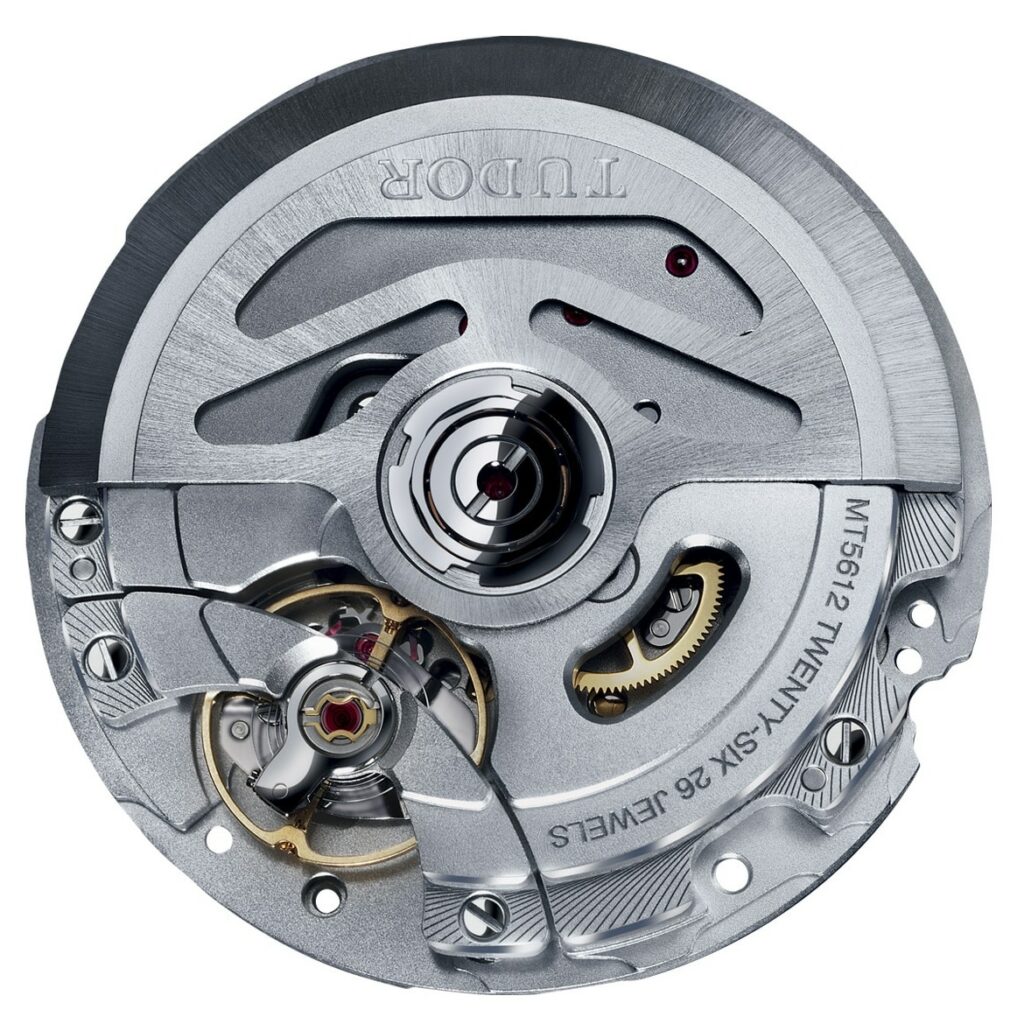
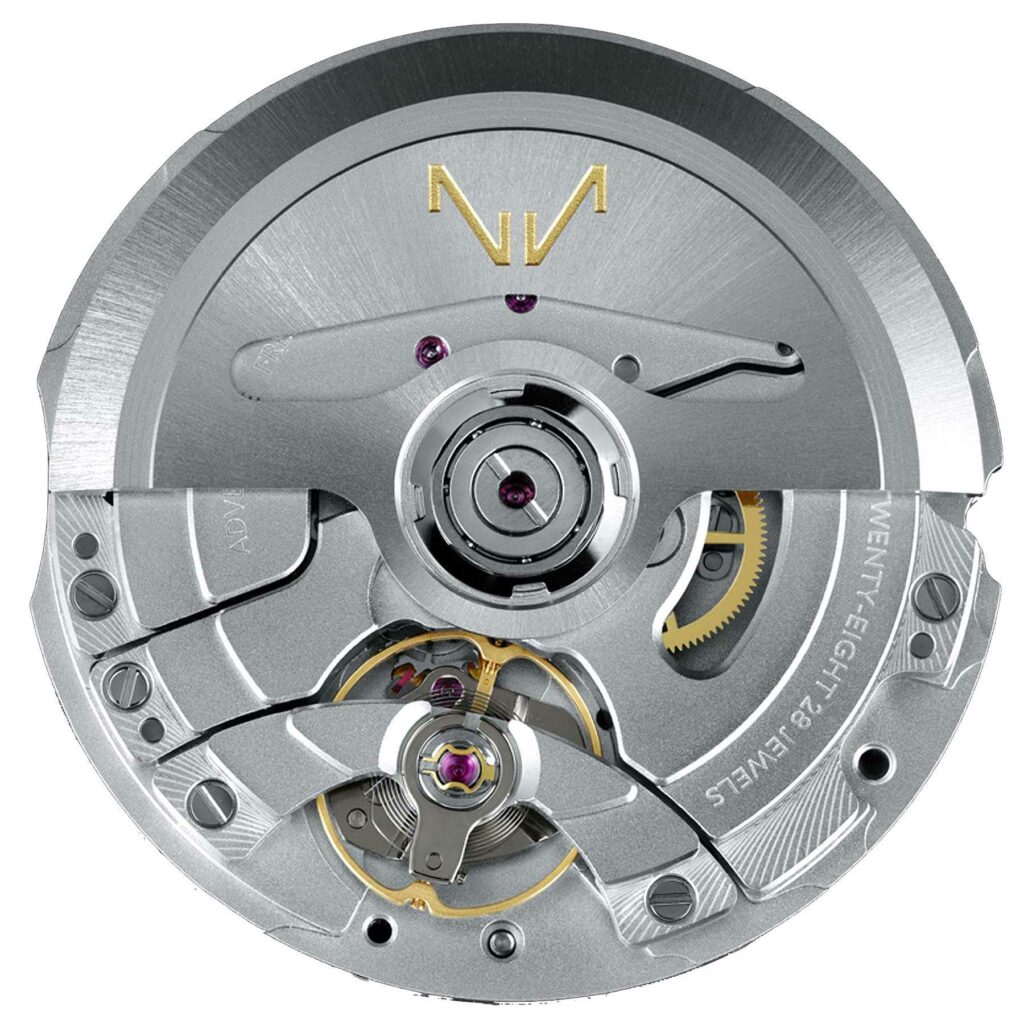
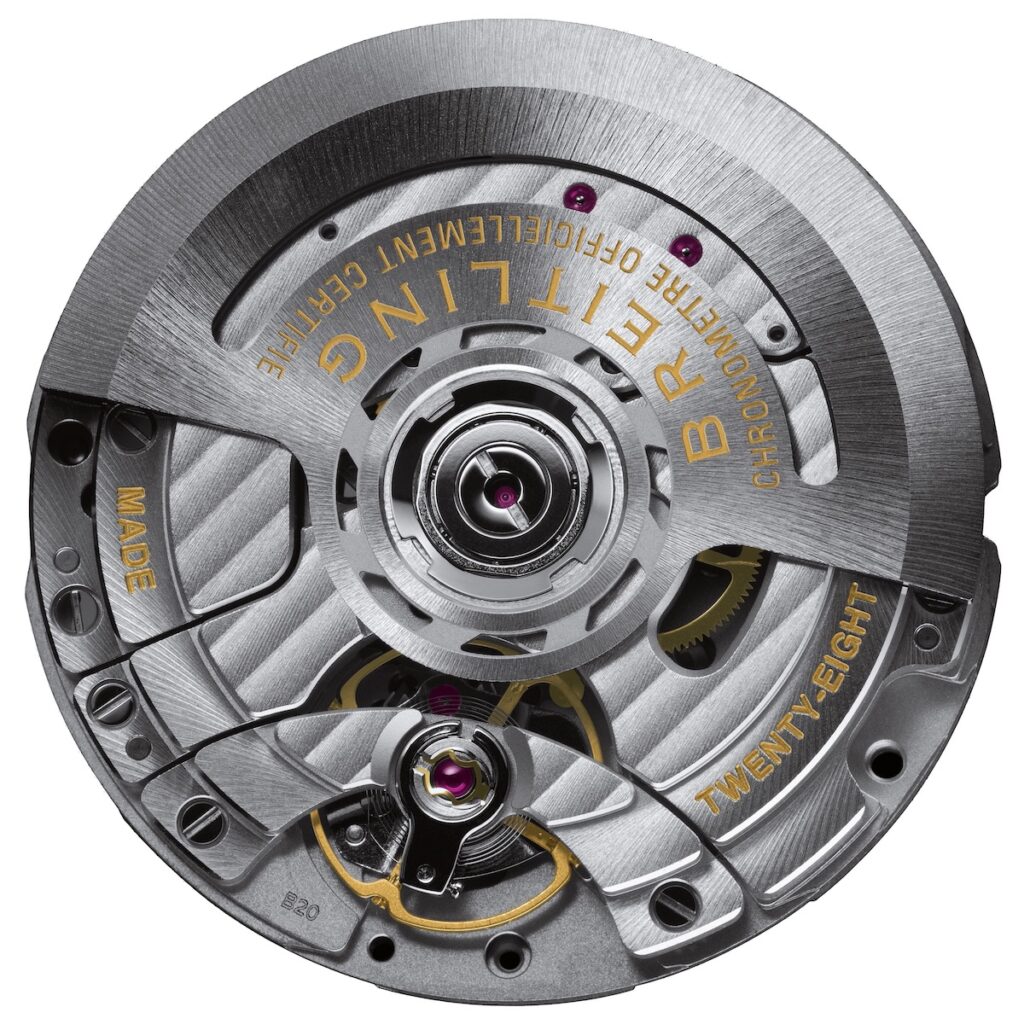
Introducing Tudor Cal. MT54 and MT56
There has been some confusion about Tudor’s MT54 and MT56 families, since the movements share many characteristics and have a similar appearance and names. For instance, they share many technical details including a full balance bridge, and Tudor’s versions use a free-sprung balance with a silicon hairspring. But the two are very different in execution, and this is immediately obvious when comparing them face to face.
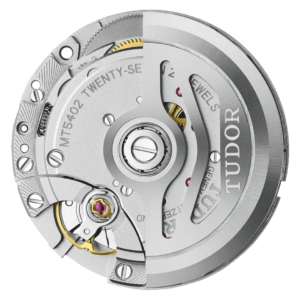
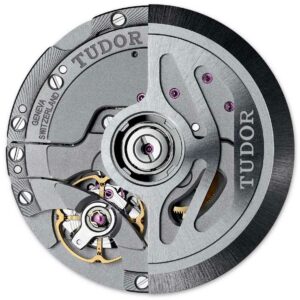
A comparison of the 26.0 mm MT5402 and 31.8 mm MT5612, to scale. Note the many visible differences in design and construction, as well as the dramatic size difference.
For one thing, Cal. MT5402 is much smaller at just 26 mm diameter, which pushes the components to the edge of the main plate. It also uses a different central rotor mount, with seven ball bearings visible around a single slotted screw. The time-only version uses 27 jewels, while Chanel’s 12.1 with date has 28. This movement is also used by Norqain but not (yet) by Breitling.
In contrast, Cal. MT5602 and similar movements are much larger, at 31.8 or 33.8 mm diameter. The winding bridge is separate from the rest of the top plate, and the balance is larger in diameter. The rotor is also mounted differently, with four notches in the mounting plate. In terms of jewel count, the time-only versions have 25, date adds one, and the complicated movements have 26, 28, or 32. Norqain and Breitling also use this movement, but Chanel does not.
Tudor MT54 Family Overview
Tudor’s MT54 family appeared in 2018 with the introduction of Tudor’s compact Cal. MT5402. Measuring just 26 mm in diameter (11 ligne), which movement was used in the smaller Black Bay Fifty-Eight 39 mm watch models. Once production was underway at the new joint venture manufacture in Le Locle, Kinessi, specialized versions were created for Chanel and Norqain, Cal. 12.1 and NN20/1, respectively.
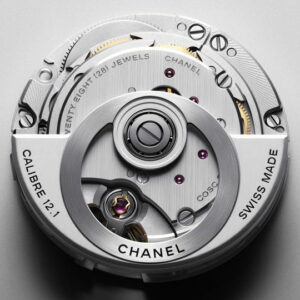

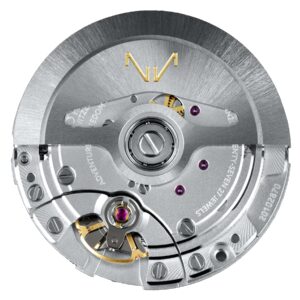
All three movements share the same architecture but differ dramatically in execution. The most obvious difference is the use of brand-specific winding rotors, with Chanel’s offset circle motif particularly striking. The Chanel Cal. 12.1 is also available with a date complication (and an extra jewel) though the name remains the same. Chanel’s movement also appears to be a bit reduced in diameter compared to the Tudor movement, though not by more than a few tenths of a millimeter.
A Celebrated Movement Family
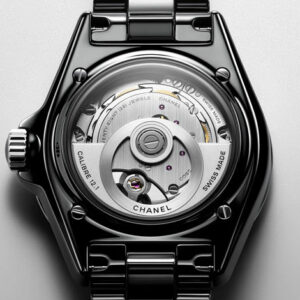
Considering the short production tenure for these movements, they are quite celebrated. I count 5 awards at the Grand Prix d’Horlogerie de Genève for Tudor/Kenissi movements:
- 2015 Sports Watch Prize: Tudor Pelagos, Cal. MT5612
- 2016 Petite Aiguille Prize: Tudor Heritage Black Bay Bronze, Cal. MT5601
- 2019 Challenge Watch Prize: Tudor Black Bay P01, Cal. MT5612
- 2019 Ladies Watch Prize: Chanel J12, Cal. 12.1
- 2020 Challenge Watch Prize: Tudor Black Bay Fifty-Eight, Cal. MT5402
Note that the 2020 Petite Aiguille-winning Breitling Superocean Heritage ’57 Limited Edition II uses their Cal. 10, which is their version of the ETA 2892-A2, and the Diver’s Watch-winning Breitling Superocean Automatic 48 Boutique Edition uses their Cal. 17, which is an ETA 2824-2. Both of these might soon migrate to the Breitling Cal. 20, another Kenissi movement, though perhaps it is slightly too thick or expensive for those watches. Tudor also won the Petite Aiguille in 2017 for the Heritage Black Bay Chrono, which uses an unrelated movement also shared with Breitling, Cal. MT5813.
Research Notes
My research into this family of movements was similar to many searches of recent releases. Although they are widely written about, there is much confusion about the details. Just like the Zenith Elite family, the Tudor MT54 and MT56 are often confused or listed with incorrect specifications. And though Tudor has released images and details of many movements, their documentation is far from complete. So we still don’t know everything we would like about them.
It is particularly interesting to note how often the MT54 is confused for the MT56 online. This happens in many forum posts, hardly a reliable source of information, but also in written articles as well. I even spotted an example of a major watch magazine using an image of an MT56 movement to illustrate an article about the unrelated MT5813 chronograph movement!
Nowhere is this more apparent than in coverage of the OEM movements produced for Breitling, Chanel, and Norqain. All three have been widely called derivatives of the MT56 series, but this is simply not true. Chanel does not use the large MT56 at all, basing their celebrated Cal. 12.1 on the MT54. Norqain has one of each, though they use deceptively-similar names: Cal. NN20/1 and NN20/2. And Breitling uses only the larger (and more expensive) movement as their Cal. B20. Once one is familiar with the two families, all the incorrect coverage becomes quite obvious.
I am also working to document Breitling’s B01 chronograph movement family, and will be publishing these movement pages over the next week. It’s less well-documented than the Tudor, and Breitling hasn’t shared many good movement images. But I think I’ve gotten on top of this large and complicated group!